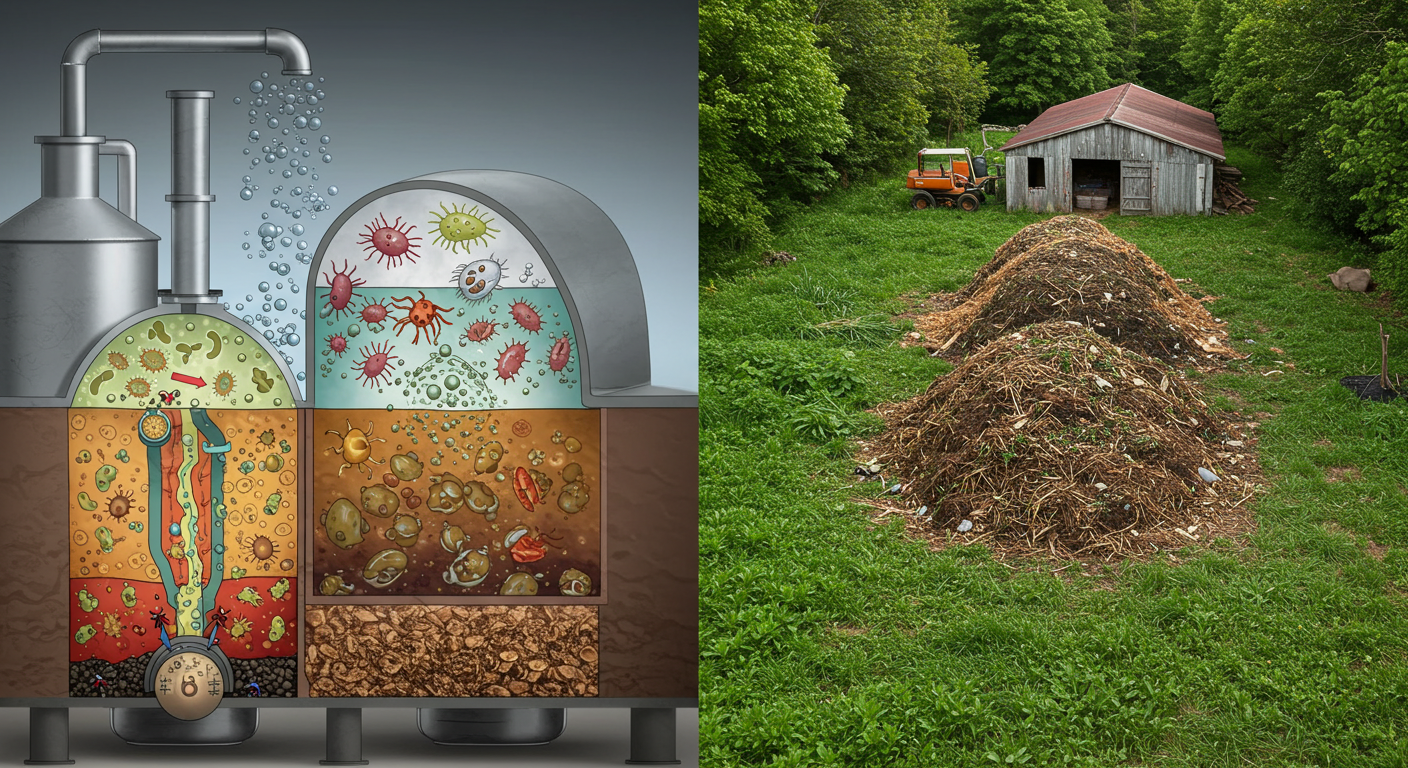Introduction to the Need for Fresh Produce in Schools
Access to fresh produce in school lunch programs is essential for promoting the health and well-being of students. Nutritional benefits derived from fruits and vegetables contribute significantly to children’s growth and development, ensuring they receive vital vitamins, minerals, and fiber necessary for maintaining a balanced diet. According to the Centers for Disease Control and Prevention (CDC), only about one in ten children consumes the recommended daily servings of fruits and vegetables, which raises concerns about their nutritional intake.
Statistics indicate that poor dietary habits among children are correlated with a range of health issues, including obesity, diabetes, and heart disease. The prevalence of childhood obesity has tripled in the past few decades, emphasizing a need for intervention at an early age. By providing fresh produce in school settings, institutions can play a pivotal role in establishing healthy eating habits that nurture long-term health benefits for students. Furthermore, proper nutrition has been linked to improved cognitive function and academic performance, which is critical in fostering a conducive learning environment.
Despite the numerous advantages associated with incorporating fresh produce into school lunch programs, challenges persist in sourcing these healthy food options. Many schools face obstacles, such as limited budgets, lack of access to local farms, and logistical difficulties in transportation and storage. These barriers often result in schools resorting to processed and pre-packaged meals that lack the nutrients necessary for optimal student wellness. By collaborating with local farms and organizations dedicated to providing fresh food, schools can not only enhance the nutritional quality of their meals but also support the local economy and promote sustainable agricultural practices.
Understanding Local Schools’ Lunch Program Requirements
School lunch programs serve a vital role in promoting the health and well-being of students. As such, they are governed by specific requirements and regulations that ensure the food provided meets established standards. Understanding these regulations is crucial for any collaboration aimed at supplying fresh produce to local schools.
One of the primary considerations is food safety standards, which are mandated by state and federal guidelines. These standards stipulate that all food served in schools must be safe for consumption and properly stored, prepared, and handled. Schools must regularly train their staff on food safety protocols, ensuring that all food products, including fresh produce, adhere to hygiene practices to prevent foodborne illnesses. Collaborators supplying produce should be informed about these safety standards to facilitate compliance during delivery and handling.
Nutritional guidelines are another key element governing school lunch programs. The United States Department of Agriculture (USDA) outlines these guidelines to ensure that students receive balanced meals that promote healthy growth and development. This includes specific requirements for the types and quantities of fruits and vegetables that must be offered. By understanding these nutritional standards, partners can better tailor their offerings to meet the needs of school menus while also enhancing the overall nutritional value of meals served to students.
Additionally, budgeting constraints play a significant role in the decision-making process for many school lunch programs. Schools must operate within a limited budget, which means they need to carefully consider their food purchases. Therefore, partnerships that offer competitively priced, high-quality produce are more likely to be successful. Collaborators should be prepared to provide budget-friendly options that align with the financial realities schools face while still aiming to improve the quality of food available to students.
Benefits of Fresh Produce for Students and Communities
The integration of fresh produce into school lunch programs yields a multitude of benefits, primarily enhancing the health of students. Access to a variety of fruits and vegetables contributes to the overall nutrition of children. Research indicates that the consumption of fresh produce can lower the risk of obesity, diabetes, and heart-related diseases among school-aged children. Moreover, incorporating diverse, vibrant fruits and vegetables into daily meals teaches students the importance of healthy eating habits early in life, fostering a sense of wellness that can last a lifetime.
Beyond the immediate health benefits, fresh produce can also enhance student learning and academic performance. Nutrient-rich foods are known to improve cognitive function, aiding in memory retention and concentration during classroom activities. A diet high in fruits and vegetables has been linked to better grades and improved behavior in school. When students consume nutritious meals, they tend to exhibit more energy and engagement, factors that contribute significantly to their overall educational experience.
The positive impacts of fresh produce extend beyond the school environment, significantly benefiting local communities. By sourcing fruits and vegetables from local farmers, schools not only support the local economy but also reduce food miles, which can lead to lower carbon emissions associated with transportation. This alignment with local agriculture fosters community engagement and strengthens connections between students and their farming neighbors. Such partnerships can lead to educational opportunities, such as farm visits or guest lectures, further enriching the students’ understanding of food sources and sustainability practices.
Incorporating fresh produce into school lunch programs not only nourishes students but also fortifies community ties and encourages sustainable practices, making it a win-win initiative for all involved.
Identifying Potential Local Partners and Resources
Establishing partnerships with local farms, co-ops, and organizations is crucial for the successful implementation of lunch programs that provide fresh produce. The first step in identifying potential partners is conducting thorough research within the community. Local agricultural associations or directories can often serve as valuable resources in locating nearby farms that specialize in fresh produce. This foundational research enables program coordinators to create a list of possible suppliers that align with the needs of their lunch programs.
Next, it is important to prioritize outreach. Initiating contact with potential partners through emails or phone calls can yield fruitful discussions about possible collaborations. Attending local farmers’ markets or agricultural fairs is another effective strategy, as it offers the chance for face-to-face interactions. These events allow program representatives to engage with local farmers and collect information on their offerings, growing practices, and availability. Communicative approaches should underscore the mutual benefits of collaborating, such as enhanced access to fresh produce for schools and better distribution opportunities for farmers.
Building relationships with potential suppliers goes beyond mere transactional exchanges. It is vital to establish a foundation of trust, communication, and shared goals. Meetings or discussions should focus on how each party can benefit from the partnership while contributing to the overall mission of enhancing student nutrition. Furthermore, it is beneficial to explore any community grants or support programs aimed at businesses participating in local sourcing initiatives, as they can strengthen collaboration efforts. Ultimately, identifying local partners for providing fresh produce requires a strategic approach that emphasizes relationship-building and the significance of community engagement in supporting the health of students.
Creating a Collaboration Plan with Schools
To effectively collaborate with local schools for providing fresh produce in lunch programs, a strategic approach is essential. The first step is to set clear goals. Goals might include increasing the availability of local produce, enhancing nutritional value, or promoting education about healthy eating habits among students. This phase not only defines the aims of the partnership but also establishes a shared vision among all stakeholders involved.
Next, it is vital to define roles and responsibilities. Each party must understand their contributions to the collaboration. Local producers should outline their capacity to supply fresh produce, while schools can detail their requirements and expectations concerning procurement processes and dietary needs. This delineation of duties helps streamline operations and ensures accountability.
Logistics play a crucial role in the success of the collaboration. This includes determining delivery schedules, storage facilities, and how produce will be distributed in the school settings. Identifying these logistical details early on will prevent misunderstandings and delays later in the process. Establishing a systematic flow of produce from local farms to school cafeterias is essential for maintaining the freshness and quality of the food provided.
Furthermore, effective communication methods should be established to facilitate ongoing dialogue. Regular meetings or updates between local producers and school representatives can foster a relationship built on trust and responsiveness. This approach not only allows for quick resolution of any issues that arise but also permits both parties to share feedback and suggest improvements.
Lastly, aligning the collaboration plan with school schedules and procurement cycles is critical. Understanding the timeline for when schools order food and how that coincides with local harvest seasons can enable both schools and producers to plan effectively. By coordinating these schedules, both parties can ensure that fresh produce is available exactly when it is needed, enhancing the overall impact of the collaboration.
Implementing the Collaboration: Challenges and Solutions
Collaborating with local schools to provide fresh produce for lunch programs presents various challenges that stakeholders must navigate to be successful. One of the most prominent obstacles is logistical issues related to sourcing, transporting, and distributing fresh produce. Schools often operate within tight schedules, and any delays in delivery can affect meal planning and ultimately the quality of the lunches provided. To address this, establishing clear communication channels between farmers, suppliers, and school officials is essential. Scheduling deliveries during off-peak hours can also mitigate disruption to the school day.
Funding constraints are another significant barrier to implementing fresh produce initiatives. Many school districts face budget limitations that hinder the ability to purchase higher-quality food items. To overcome this challenge, schools can seek partnerships with local agricultural organizations or government grants specifically aimed at improving nutritional standards. Engaging local businesses in sponsorships or fundraising efforts may also provide the necessary financial support to enhance the lunch programs.
Resistance to change among staff, parents, and students can pose additional challenges. Individuals may be hesitant to embrace new menus featuring fresh produce, especially if they are accustomed to traditional offerings. To ease the transition, schools should focus on education and outreach initiatives that highlight the benefits of fresh ingredients. Organizing taste tests or cooking demonstrations can engage students and their families, fostering enthusiasm for healthier choices. Furthermore, involving students in the planning process can empower them and create a sense of ownership over their meal options, easing any apprehension regarding the changes.
In conclusion, while challenges exist in implementing collaborations for fresh produce in school lunch programs, proactive strategies such as effective communication, seeking funding opportunities, and educational outreach can significantly enhance the likelihood of success. Through thoughtful planning and community engagement, schools can overcome these hurdles and provide healthier meal options for their students.
Success Stories: Case Studies of Effective Collaborations
Many communities across the country have witnessed the positive impact of collaborations between local farms and schools in providing fresh produce for lunch programs. One illuminating example is the partnership between Sunny Acres Farm and Maple Valley High School. Recognizing the importance of healthy eating among students, the farm initiated a farm-to-school program that supplies a variety of organic produce, including vegetables and fruits, directly to the school cafeteria. This collaboration not only ensured a supply of fresh and nutritional ingredients but also fostered educational opportunities where students learned about agriculture and sustainability through farm visits.
Another impressive case is the alliance formed between Green Fields Organic Farm and Riverside Elementary. This partnership included a program called “Tasting Tuesdays,” where students could sample seasonal produce harvested from the farm. Parents and community volunteers collaborated with teachers to organize cooking demonstrations, which promoted the importance of healthy eating. The success of such initiatives led to an increase in the consumption of fruits and vegetables among students, ultimately resulting in improved overall health and wellness for the entire school community.
In further demonstrating the benefits of these collaborations, the case of Clear River Farm and West End Middle School showcases a unique approach. Here, the farm provided not only fresh produce but also educational workshops on planting, gardening, and nutrition. Students actively participated in planting gardens on school grounds, creating a hands-on learning experience. This initiative instilled a sense of responsibility among students, increasing their appreciation for local agriculture and enhancing their knowledge about food sources.
These case studies exemplify the diverse strategies employed within successful partnerships between local farms and schools. By showcasing real-world examples of effective collaborations, they serve as a valuable blueprint for other communities aiming to initiate similar endeavors. The outcomes of these partnerships demonstrate the potential to enrich school lunch programs with fresh produce, thereby promoting healthier eating habits among students.
Monitoring and Evaluating the Impact of Fresh Produce Initiatives
The implementation of fresh produce initiatives in school lunch programs necessitates a robust framework for monitoring and evaluation. This framework ensures that the objectives of improving nutritional outcomes and enhancing student satisfaction are met effectively. Evaluating these initiatives involves determining their success through various metrics, fostering a cycle of continuous improvement.
One effective method for assessing nutrition outcomes is through pre- and post-intervention surveys aimed at understanding changes in students’ dietary habits. These surveys can measure the frequency of fruit and vegetable consumption among students, as well as their knowledge of healthy eating practices. Additionally, tracking changes in weight and overall health metrics can offer valuable insights into the initiative’s effectiveness in influencing student health behaviors over time.
Student satisfaction also plays a vital role in establishing the success of fresh produce initiatives. Feedback mechanisms, such as anonymous surveys or taste tests, allow students to express their opinions on the quality and variety of the fresh produce offered. High levels of satisfaction are crucial, as they encourage students to make healthier food choices, ultimately aligning with the program’s goals.
Involving various stakeholders, including parents, teachers, and local farmers, is essential for comprehensive evaluation. Stakeholder feedback can provide insights into the social and cultural relevance of the produce being offered, ensuring that it meets the preferences and expectations of the community. Regular meetings or focus groups with these parties can facilitate dialogue and foster collaboration, addressing any challenges or adjustments needed to enhance the initiative.
In conclusion, systematically monitoring and evaluating fresh produce initiatives in schools is essential for determining their impact. By employing a combination of surveys, health metrics, and stakeholder feedback, schools can measure the effectiveness of these programs and identify areas for improvement, fostering healthier eating habits in students and encouraging lasting change in their dietary preferences.
Encouraging Community Engagement and Support
Community engagement plays a vital role in ensuring the sustainability of fresh produce programs in schools. By fostering collaboration among parents, local businesses, and community members, schools can create a strong support network that benefits both students and the local agricultural economy. One effective approach to encourage community involvement is to establish partnerships with local farms and grocery stores that prioritize sustainable practices. These partnerships not only secure a steady supply of fresh produce but also provide an educational platform for students to learn about healthy eating and local food systems.
To actively engage parents, schools can organize informational meetings and workshops that highlight the benefits of fresh produce and nutrition. By involving parents in decision-making processes and inviting them to share their thoughts and ideas, schools can create a sense of ownership and responsibility towards the program. Additionally, regular newsletters or digital updates can keep parents informed about the progress of the initiative and any upcoming events where they can participate.
Local businesses can also play a significant role in supporting fresh produce programs. Sponsorship opportunities, such as funding school garden projects or providing resources for lunch programs, enable these businesses to demonstrate their commitment to community health. Schools can facilitate this collaboration by creating a “Local Business Partnership” program, where businesses are recognized for their contributions through promotional materials or during school events.
Finally, hosting community events such as farmers’ markets, cooking demonstrations, and “farm-to-table” nights can raise awareness and foster participation in the initiative. Involving students in planning and executing these events can instill a sense of pride and accomplishment. Experts suggest that making the program visible and accessible enriches community ties and promotes a collective effort to support the health and well-being of students. This collaborative approach is crucial for sustaining fresh produce programs in schools and ultimately contributes to a healthier future for the entire community.





